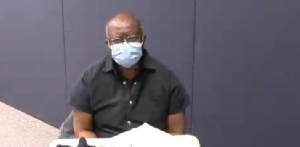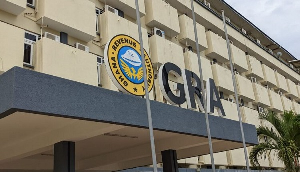By Kofi Akosah-Sarpong*
It was the German thinker Karl Max who observed that the human mind is linked by invisible thread. Marx could be interpreted in many ways but the sense here is how rapid the Ghanaian enlightenment movement is briskly spreading among Ghanaian elites, both at home and in the diaspora. They are using it in their various situations to influence change. Part of the reason for such remarkable spread is that people and institutions are convinced of its relevance; it is free spirited and pro bono.
From Kumasi Asante Kotoko, transportation experts, medical practitioners, politicians, journalists, women’s organizations, non-governmental organizations, anti-corruption crusaders, lawyers, traditional rulers to bureaucrats, as Marx would say, all minds are linked by some invisible thread, as if they all in one room debating the enlightenment as they attempt to rigorously ruminate through the Ghanaian/African culture for progress. The trend is on ascendency.
Part of the reason for the crusade is to free the Ghanaian/African from some noxious ignorance, erroneous beliefs and strange thinking that have asphyxiated their progress. Again, part of the reason is to appropriate the enabling aspects of the Ghanaian/African culture for policy development and greater progress. The evolving enlightenment game is holistic, playing with multiple issues at the same time.
Though it has its distinct African sagacity, the playground of the on-going enlightenment movement is similar to the situation in the 18th-century European Enlightenment period, as recounted in Philipp Blom’s new work A Wicked Company: The Forgotten Radicalism of the European Enlightenment (2010), where a Paris salon run by Baron Paul Thierry d’Holbacha was turned into a philosophical playground for many of the “greatest thinkers of the age” and from there part of the European development philosophy ballooned.
In the Ghanaian context, the playground is everywhere, from newsrooms to the mentality that witchcraft-is-responsible-for-mother’s-death. Samples: Ex-President John Kufour has said in Lagos, Nigeria that Africa’s high corruption is partly due to certain aspects of its culture. Kumasi Asante Kotoko, after 75 years, banned the irrational juju spiritual from its operations. Transportation experts advise that vehicular accidents aren’t caused by evil spirit. George Ayittey says some of the African culture promotes tyranny. Development experts complain of the tyrannically egocentric Big Man syndrome that inhibits dialogue, induce oppression, stifle freedoms and human rights, and undermine democracy.
Medical practitioners, the clergy and traditional rulers tell Ghanaians to spend more on the living for better life and less on the dead which receive higher expenditure. Editorialists say evil spirits aren’t responsible for crime but human agency. Educationists call for more inclusion of Ghanaian/African cultural sensibilities in the curriculum. Policy planners are being enjoined to adequately factor in Ghanaian/African cultural values in policy development.
Broadly, these are all attempts to build on what earlier African sages such as Kwame Nkrumah and Julius Nyerere had thought about. They held the sacred idea of Pan-Africanism and its associated African Personality not only as unifiers but also ways of correcting historical and psychological dilemmas the African faces from colonialism, the trans-Atlantic slave trade and the discriminatory international political economy.
Unlike Nkrumah and associates era, today, Pan-Africanism, as feel-good-mixed-bag philosophical doctrine of yesteryears, is being taken to different level by the Ghanaian/African enlightenment thinkers, who are simultaneously wrestling with the refinement of the obstacles within the African culture that have been hindering progress and the appropriation of the enabling parts for advancement. The thinkers are aided by new high powered researches, think tanks, positive values of globalization, the new media, new technologies, mass communications gadgets and transnational Ghanaians/Africans who are increasingly connecting the global prosperity ideals to their home countries.
It is in such atmosphere that high profile Ghanaians such as former United Nations chief, Kofi Annan, and chair of Ghana’s National Development Planning Commission, P. V. Obeng, who have been in the Ghanaian policy development scene since 1994, joining the enlightenment deliberations. But of supreme distinction, because of its age, vast experiences and its immensely powerful communications outreach nation-wide, is the 60-year-old Accra-based Daily Graphic, the state owned newspaper, joining the enlightenment dialogues.
For some time, most Ghanaian mass media such as The Ghanaian Times, The Ghanaian Chronicle, The Daily Guide, The Accra Daily Mail, The Enquirer, Gye Nyame Concord, Joy FM, Peace FM, Adom FM, Ghanaweb, Citi FM, Public Agenda, Heritage, Crusading Guide, among others, have carried the enlightenment case. As part of the broader attempts to refine some inhibitions within the Ghanaian/African culture, the Daily Guide, as an outstanding example, have been employing solution journalism to elaborately interpret certain constraining Ghanaian/African cultural practices and their hazardous implications to better living, human rights, freedoms, democracy, rationality, the rule of law, and prosperity.
In this regard, the enormous Daily Graphic could be humble enough to borrow some enlightenment lessons from the much younger The Daily Guide. For the Daily Graphic’s union with the enlightenment campaign reveals its act of humility.
Established along with the London, UK-based Sunday Mirror by Cecil King (of the London Daily Mirror Group), the Daily Graphic is Ghana’s number one newspaper, with string of sister publications. Like Ghana’s rough-and-tumble development history, the Daily Graphic has seen a large number of editors of diverse background swinging in its editorial room, sporadically replaced by respective governments – both military juntas and civilian regimes. The most notable was in 1979 when it was rechristened the People's Daily Graphic under the Ft. Lt. John Jerry Rawlings military junta, ostensibly to “remind the people that it belongs to them,” as a blurb says.
For the past 60 years, the Daily Graphic revealed the muddled philosophical grounds of Ghana’s and Africa’s development thinking, a thinking not determined by Ghana’s and Africa’s cultural values. At issue aren’t dancing and traditional fines arts but how Ghanaian/African cultural values should tell the rational basis of Ghana’s and Africa’s progress. Today it is socialism, tomorrow it is capitalism, the next day it is social democracy, on Monday it is a mixture of everything.
We saw this mix-up more in the almost 20 years of the Jerry Rawlings military juntas and civilian administrations – heavily circling in their minds Soviet-Cuban-type socialism and European-type capitalism, if Ghana/Africa is Russia, Cuba or Europe. Or psychologically, as if Ghana and Africa have no traditional development values of their own that need to be appropriated for progress. In all these jumping around, Ghanaian/African cultural values, as rational underpinning to motivate Ghana/African progress, were virtually nil.
As much as the Daily Graphic knows, yes, Kwame Nkrumah and Julius Nyerere, among others, were passionate Pan-Africanists and profoundly touted the virtues of Pan-Africanism and the African Personality but African bureaucracies from their time to now do not reflect these cultural virtues in their practices as the Southeast Asians have fruitfully done. Of philosophical interest to the Daily Graphic is the fact that their editorial philosophies, for the past 60 years, have not been genuinely entrenched and interpreted in Ghanaian/African cultural values as motive force to influence policy making and progress, compared to the Okinawa, Japan-based The Asahi Shimbun or the Seoul, South Korea-based Gook-Min Ilbo that reflect the Southeast Asian Renaissance.
As variously heard from the enlightenment thinkers and reiterated by P.V. Obeng, who reflects Nkrumah and associates inadequacies as a long-time de facto Prime Minister under Jerry Rawlings’ regimes, national planning strategically didn’t factor in Ghanaians’/Africans’ traditional values in policy development. However, the Japanese, through their Renaissance, did that, part of which has resulted in their superb management system microwaved from within their cultural values. One aspect is called Kaizen (Japanese for "improvement" or "change for the better") which could be replicable anywhere, as they will tell you. Born into the Pan-African doctrine, the Daily Graphic had been expected to be chief influencer to box in the Obengs and the Ghanaian system into planning from within Ghanaian/African cultural values in the development process.
On the other side of enlightenment coin, as Kofi Annan re-echoed, is the tweaking of the inhibitions within the Ghanaian/African culture that have been blocking progress. Annan mentioned the destructive Pull Him Down (PHD) syndrome, a situation where Africans, like crabs pulling each other down as they attempt to climb out of a trap, destroy each other as they attempt to progress. While part of the reason may be tribalism, other reasons may be the easy access to negative juju-marabou spiritual medium and other wrong-headed spiritualists to bring the progressive African down.
In 2008, newly elected President John Atta Mills, aware of the micro-level PHD projected into the macro-level, that have seen the unhelpful practice of new governments either discontinuing or destroying development programs of the previous governments, said that, “policies and programmes currently in the pipeline, initiated by the last administration, which supported positive national development, must be thoroughly reviewed, preserved and added to the new initiative that would be recommended.”
The end product of Annan, Mills and Obeng views, as replication of the enlightenment thinkers, is long-running convoluted national development policies that aren’t helpful to the Ghanaian/African progress and psychology, and that have feeble rational realities. Y.K. Amoako, the ex-chair of the UN Economic Commission for Africa, would add that part of the reason for this state of affairs, sadly, is that Ghana/Africa is the only region in the world where their development hypotheses are driven by foreign paradigms to the detriment of their rich cultural values.
Shaking itself from such false sense, the Daily Graphic in an editorial soberly entitled Ensuring Long-Term Development (27 October 2010), revealed its new philosophical realities, or something like that, that incorporates the on-going enlightenment stance, as taken up by Annan, Obeng, and others.
Refreshingly, said the Daily Graphic, “In a matter of five days, a negative aspect of African politics, which is very rife in our dear nation, has been brought to the fore. First, it was former UN Secretary-General, Busumuru Kofi Annan, who slammed the way African governments took delight in undoing the work of their predecessors for political advantage. He noted that instead of focusing on how to build on the good initiatives of their predecessors, governments sometimes spent half of their terms dismantling the work of their predecessors with the intention of making them unpopular…
“Then, in a positive response to the concerns raised by Mr. Annan, the Chairman of the National Development Planning Commission (NDPC), Mr. P. V. Obeng, advocated the inclusion of all political parties on the commission to ensure that long-term national development plans were sustained and not truncated by the pull-him-down syndrome which had permeated our political landscape …”
While the enlightenment crusade welcomes the Daily Graphic’s innovative thinking, of concern is lack of open mention of Ghanaian/African cultural values as part of the inclusion into national planning. Whether in Annan or Obeng, as echoed by the enlightenment thinkers, the onus unweavingly rest with Ghanaian/African bureaucrats, the Daily Graphic and other mass media, elites (as directors of progress) and Obeng’s National Development Planning Commission. The National House of Chiefs, as gleaners of culture, will be superb national policy sounding board. Once again, in floating this new development thinking, where all Ghanaians “co-author and own” the national planning (as the Daily Graphic fittingly said), the ownership and authoring should be pollinated in Ghanaian/African cultural values.
This is for psychological, historical and psychic whys and wherefores such as refining the ““PHD” syndrome and opening the floodgates for true development on all frontiers … It is also the way to achieve sustainable development that can lead to long and healthy lives, enlightenment and knowledge and access to resources needed for a decent standard of living and be able to participate fully in the decision-making process,” as Daily Graphic contends.
Having recovered itself from years of misperception, the editorial room of Daily Graphic is expected to become the hot incubator for the new development thinking, where Ghanaian/African traditional values will be used to prepare new clear cut realistic national policies. In this context, with its mature age, enormous national outreach and vast mass communications powers, the Daily Graphic becomes the philosophical playground for the emerging Ghanaian/African development thinking in the 21st century.
It is in this thermosphere that a new African journalism philosophy, brewed from within Ghanaian/African cultural values, will be famously hatched, as driver of re-invigorated Ghana/Africa progress. Such new thinking will fit into the backdrop of the younger The Ghanaian Chronicle saying that “It is instructive to note that the incoherent implementation of development projects by successive governments is inimical to the forward march of the country’s development agenda.”
Whether in Annan, Obeng, The Ghanaian Chronicle or the Daily Graphic, at issue is development thinking that emanates from the core ideals of Ghanaian/African traditional values, histories and experiences such as the legacies of colonialism. And the product of this mixture can aptly be called, both philosophically and practically, the African Consensus.
The African Consensus, in the face of the Daily Graphic’s new editorial beliefs, will be a response to the USA-based Time magazine’s Michael Schuman jadedly asking, “India vs. China: Which is the best role model for the developing world?” While India or China may be of shining development footnote to Ghana/Africa, of progress intelligence is the fact that their successes are partly driven by their core traditional values and histories, swayed by their elites and mass media. China’s Confucianism and progress; India’s Sanskritism and advancement. Yes, as Schuman indicated, “every up-and-coming poor nation wants to “be like China.”” But how to be like China involves clear weighty thinking by each poor nation’s elites. And that means reasoning from within the poor nation’s cultural elements and experiences.
After 60 years of the Daily Graphic existence and after 53 years of Ghana’s birth, after many tumbles within its editorial room, the Daily Graphic, among other emerging enlightening media houses, doubts the development policies currently running Ghana, and by extension Africa. The policies aren’t realistic, they are convoluted, and they aren’t overwhelmingly informed by Ghanaian/African cultural values.
Ghana and other African states were founded on ex-colonial Western development paradigms that didn’t adequately factor in Ghanaian/African cultural values, the Daily Graphic’s new real thinking calls for a re-orientation of the country’s development paradigms, manufactured from within Ghana’s and Africa’s cultural values. Once again, the strategy is to appropriate the enabling aspects and refine the inhibiting values for progress. Globally, the Daily Graphic is warming up to the enlightenment thinkers who draw from the global prosperity ideals. From Southeast Asian to Europe, nations that have prospered, and sustained it, have done so from within their core cultural values and play them with other worldly prosperity ideals.
Time’s Schuman indicates that “The rise of China has made the West doubt the continued validity of its cherished principles of democratic, fee-market capitalism ... The old “Washington Consensus,” based on a devotion to free markets and free enterprise, is being replaced by the “Beijing Consensus.” But is China’s Beijing Consensus really the winning formula for poor nations? Larry Summers, Obama's assistant on economic policy, raised the idea in a recent speech that India's political-economic model, which he labeled the “Mumbai Consensus,” may in the end win the day.”
Consequently, this question from Schuman will be appropriate to the Daily Graphic’s new bearing: “So what's a better model for” Ghana’s and Africa’s progress? “– the Mumbai Consensus or the Beijing Consensus?” Though the best model for Ghana and Africa isn’t either but the one from within themselves, occasionally, Ghanaians/Africans and the Daily Graphic could draw lessons from the Chinese and Indian models. And that means the Daily Graphic, with its vast communications powers, will join the enlightenment thinkers in giving birth to the African Consensus.
There surely have to be an African Consensus, if Ghanaians/Africans are to live sustainably real comfortable lives. As we are experiencing from Ghanaians from diverse stations of life getting involved in the selfless enlightenment campaigns, this will be assisted by researchers, the mass media, thinkers, traditional institutions, opinion leaders and elites. This will aid the Daily Graphic in its new thinking, help grow the real Ghana/African development philosophy, and open the way to the renewal of Ghana’s and Africa’s progress.
*Kofi Akosah-Sarpong is a journalist and academic.
Opinions of Friday, 5 November 2010
Columnist: Akosah-Sarpong, Kofi














